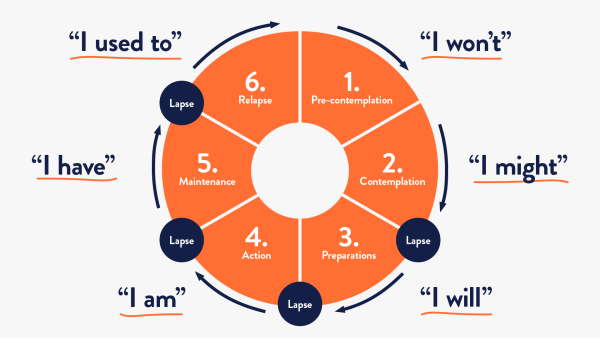
Planning & budgeting
Saving & investing
KiwiSaver
Tackling debt
Protecting wealth
Retirement
Home buying
Life events
Setting goals
Money tracking
Plan your spending with a budget
Getting advice
Studying
Get better with money
What pūtea beliefs do you have?
How to build up your emergency savings to cover unexpected costs
How to save your money
How to start investing
Find a financial adviser to help you invest
Your investment profile
Compound interest
Net worth
Types of investments
Term deposits
Bonds
Investment funds
Shares
Property investment
How KiwiSaver works and why it's worth joining
How to pick the right KiwiSaver fund
Make the most of KiwiSaver and grow your balance
How KiwiSaver can help you get into your first home
Applying for a KiwiSaver hardship withdrawal
How to use buy now pay later
What you really need to know before you use credit
How to get out of debt quickly
Credit reports
Know your rights
Pros and cons of debt consolidation
Credit cards
Car loans
Personal loans
Hire purchase
Student loans
Getting a fine
What happens if I start to struggle with moni?
How to protect yourself from fraud and being scammed
About insurance
Insurance types
Insuring ourselves
Wills
Enduring powers of attorney
Family trusts
Insuring our homes
Losing a partner
Redundancy
Serious diagnosis
How to cope with the aftermath of fraud
Separation
About NZ Super – how much is it?
When you’re thinking of living in a retirement village
How to plan, save and invest for retirement
Manage your money in retirement
Find housing options in retirement
Four approaches to spending in retirement
Planning & budgeting
Saving & investing
How to build up your emergency savings to cover unexpected costs
How to save your money
How to start investing
Find a financial adviser to help you invest
Your investment profile
Compound interest
Net worth
Types of investments
Term deposits
Bonds
Investment funds
Shares
Property investment
View all
KiwiSaver
Tackling debt
How to use buy now pay later
What you really need to know before you use credit
How to get out of debt quickly
Credit reports
Know your rights
Pros and cons of debt consolidation
Credit cards
Car loans
Personal loans
Hire purchase
Student loans
Getting a fine
What happens if I start to struggle with moni?
View all
Protecting wealth
Retirement
Home buying
18 September 2023
Reading time: 5 minutes
Posted by The Umbrella Wellbeing Team,
0 comments

This Mental Health Awareness Week, our friends from Umbrella Wellbeing join us for a guest blog on building good financial habits. Umbrella is a team of psychologists, researchers and workplace wellbeing experts focused on improving the mental health and resilience of people in New Zealand.
Important note: This article is aimed at providing some tips for how to manage behaviours around how we use our disposable income. We acknowledge that many don’t have extra cash to spend, nor the resources to receive external financial support and guidance.
If you’ve ever tried to change a habit, you’ll know it’s not always easy, and changing financial habits is no exception.
Forming good financial habits, like budgeting, tracking our spending, or making wise choices with our money, is an ongoing process.
The Transtheoretical Model of behaviour change was developed by psychologists in the 1970s. It describes the six stages of change a person goes through when attempting to alter their behaviour. When we apply this to our financial behaviours, we can pinpoint where we are in the cycle – and what might help us to move forward.

This stage is characterised by a lack of acknowledgement that there is a problem. Those in this stage have no intention to take action in the near future, and many are unaware that their behaviour is problematic.
A way to move forward from this stage is to build your financial knowledge, find out what “good behaviour” looks like in a financial sense, and see how this matches up with what you are currently doing and thinking. This will give you a frame of reference for your unique situation.
You may have recognised that some of your financial behaviours are problematic, and you’ve started to look at their benefits and drawbacks. You may also notice that other demands are taking up your attention and resources.
A way to move forward might be to think about the barriers preventing you from committing to change. Can you spare some time to think about your financial wellbeing? What are the pros and cons of changing your financial behaviours?
Try to think about the long-term impacts and whether these will set you up for a stable financial future.
You’ve sought out knowledge about your financial behaviour, acknowledged there is a problem, and you intend to do something to change this. At this stage, clear guidance and direction can help provide the needed boost to translate intentions into action.
This might mean seeking financial advice or planning out small, achievable steps towards full-scale behaviour change. For example, eating out twice per week instead of four times, or opening a savings account and committing to putting in one dollar every other day.
You’ve made some positive changes and may have started to build up some savings. You may be bringing lunch to work or cycling instead of driving. You are starting to see results.
Once you reach this stage, it is important to reinforce and support your efforts. Reward yourself for the steps you have taken and make sure they are sustainable – it is okay to mix things up if they aren’t going as intended. It is also useful to make a plan of what to do in times of stress or extra costs, or if something throws you off rhythm.
You have now changed your financial behaviours and have a plan to maintain them. Here, the main focus is staying on course and avoiding over-confidence.
It’s important to not be too hard on yourself if you have a set-back. Whether you find yourself cracking the lid on your savings for the wrong reasons or turning back to the credit card, the best thing you can do is simply not give up. As soon as you can, nudge yourself back to those good habits and keep them going. You’ve got this!
Whether it’s investing, budgeting, or saving, we all fall off the wagon sometimes. The key thing to focus on is what you do when this happens.
Lapses can occur at any part in the behaviour-change cycle, and are really common, even to be expected. Remember – you are human not a robot! It can be helpful to think about what caused the lapse, then make a plan to reduce the likelihood of it happening again.
Keep an eye on your thoughts. Rather than thinking, “I’ve blown this, there’s no point in keeping on trying”, acknowledge that “This was a set-back but I can keep moving forward”.
Be wary of thinking “traps”, such as “all or nothing” thinking: “If I can’t do it now, I’ll never be able to do it.” Or emotional reasoning: “I feel lazy and unmotivated, therefore I must be lazy and unmotivated.” Challenge these thoughts with questions like, “Would I think this of someone else?” or “Am I looking at the whole picture?”.
What stage are you at in your financial wellbeing journey? What about your friends, whānau or colleagues? Rather than trying to transform your financial habits overnight, see you if you can take one step towards the next stage – whether that’s moving from “contemplation” to “preparation” or from a “lapse” back into “action”.
Financial wellbeing is a lifelong journey that we are in for the long haul. Taking small, purposeful steps in the right direction helps us to form long-lasting financial habits.
Use verification code from your authenticator app. How to use authenticator apps.
Code is invalid. Please try again
Don't have an account? Sign up
Or log in with our social media platforms


A free account gives you your very own space where you can save your tools and track your progress as you get ahead.
Or sign up using Google:



Comments (0)
Comments
No one has commented on this page yet.
RSS feed for comments on this page | RSS feed for all comments